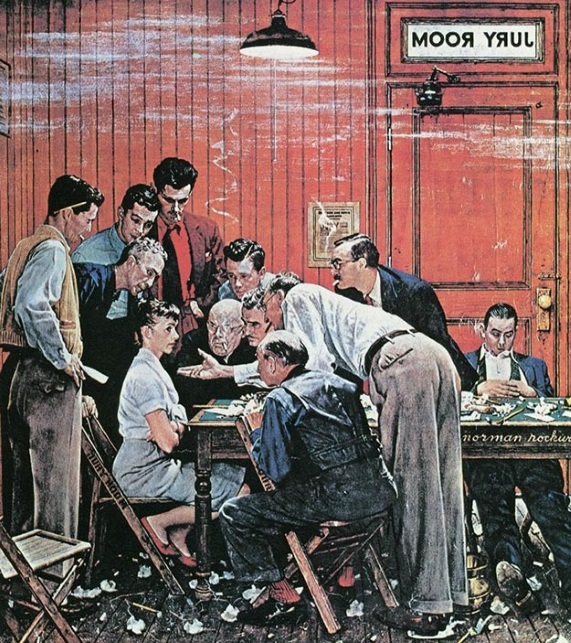Do I have your attention? 😉
A society which oppresses women digs its own hole, since women are the ones who primarily raise its children. An unhappy woman with no self-esteem can’t teach her children to be happy and loving. Then the society as a whole cannot be kind, friendly and ethical. All the other “cultural” differences are just details.
我们可以在世界各地观察到 妇女真正受到尊重的社会也是最幸福、最先进的社会. When using the word ‘advanced’ I don’t necessarily mean technological and economical opportunities (even if there are some connections that can be made), but emotional and social quality of life in the first place. Some societies humiliate women in subtle, not so obvious ways, and it too has consequences.
Western societies regularly turn a blind eye to the abuse of women in some other countries or religions, calling it “cultural differences”. This is cowardly. Culture should not include violating human rights – 人权应高于文化.考虑到文化传统往往是在过于简单化的偏见和夸大的基础上形成的,我们是否真的应该尊重文化传统而不是基本人权?
然而,女性和男性一样,也要为这一变化负责。在我认识的人中,不少男性对女性的赞美多于男性,而很多女性则批评男性,觉得自己是受害者。另一方面,考虑到我的工作性质,我通常会遇到比一般人更成熟的男性,而网络上的空白往往会给人留下截然不同的印象。
总之,只要绕着 批评男性是一种受害者态度, not a constructive one. Many men can’t be expected to be motivated to respect women, but this comes from their childish feelings to which criticism doesn’t help at all. Boys raised in patriarchal societies usually find deep relief as soon as they become aware of their own gender, and try to act as manly as possible in order to ‘deserve’ the freedom and respect they see other men getting. Even if they wouldn’t do so, society would force them to, through humiliation and rejection if they showed any ‘feminine’ behaviour (even if such behavior has more to do with wider knowledge and understanding than gender). Sometimes their mothers and sisters support this as much as fathers and brothers.
母亲的影响
Some mothers still encourage their own daughters (and sisters, daughters in law…) less than sons, expect less from them and appreciate them less. Unconsciously, this comes from the same attitude such a woman has for herself.
母亲的影响力远大于父亲 over a child’s basic impression of themselves and the world around them. The younger the child is, the deeper and stronger these impressions are, and in the first few months and sometimes years of life, the mother is definitely the closest person. Not to mention the pre-natal period, which is probably just as important. I’m not diminishing the father’s role, but it rarely has such deep fundamental influence as the mother’s.
与人合作时,我通常会注意到 母亲情感不够成熟的人 而不是父亲,通常会发现 更难改变 and need more time and effort to do it, than people whose father was the less mature one. The father definitely influences the child’s personality, beliefs and emotional patterns which might cause them problems later in life, but still has less influence than mother to the deepest, most basic self-perception.
承担责任
承担责任意味着我们首先要让自己生活得幸福,为女儿提供一个受人尊重的环境,拒绝任何支持偏见的行为(比如送小女孩参加选美比赛)。
The change can’t be imposed aggressively to others. A woman has to be gentle, but persistent. The change must be based on our own behavior as the example. Children learn mostly from observing others and their example, and many adults still learn fastest in that way too.
It’s important for women to realize that, just as they were indoctrinated through most of history to not achieve more and demand more, so were men and boys indoctrinated to think what is normal and what to expect from women. It’s pointless to blame them for being indoctrinated, just as it’s pointless to blame girls and women for not knowing better. Many men are willing to consider the female perspective if it’s 以友好和符合逻辑的方式呈现,而不是充满指责和一概而论. Some men are not willing to listen because they prefer privilege and power. With such men, it’s especially important to keep in mind the following paragraph.
一致性和行动的重要性
如果你想得到别人的尊重,你就必须表明你尊重自己。 人们通常会本能地尊重你,就像他们觉得你尊重自己一样。 Words are not enough – in fact, 言而无行,只会削弱你的内在和外在力量.你需要采取果断行动,不是试图控制任何人,而是 表明你有自己的意志、自己的思想、自己的目标和自己的身份. Complaining and criticizing doesn’t do that.
If you complain or threaten, only to cave in in the end; or if you justify, ignore or “forgive” inconsiderate, disrespectful, or even violent behavior out of love or pity, or if you hope that the other person would see reason if you are kind enough, the only message the other person will receive is that it pays off to treat you that way; that such behavior is tolerable and justifiable. Few people are able to resist the opportunity to exploit others once they see it’s possible已经表现出不尊重的人就更不可能再这样做了。
唯一的解决办法,正如我所说 在本文中, is to prioritize your important values over a relationship – ANY relationship. You must not be afraid of losing a relationship, otherwise you’ll probably end up losing yourself. 如果你觉得一段关系比你自己的自尊和正直更重要,这很可能意味着你从小就被灌输了不重视自己的思想(有意识或无意识地)。这是可以改变的,但你需要愿意面对自己的恐惧。
Some people don’t care about their own selves enough to even try. It’s unlikely we can help them, unfortunately, because they will simply lack motivation to strive for anything beyond magical solutions or controlling other people. We can help those people who might be afraid, but who still have the spark within, even just a tiny little “pilot-flame” of identity and courage, that past abuse, neglect or discouragement didn’t manage to extinguish.

Norman Rockwell: “The Jury”
相关:

